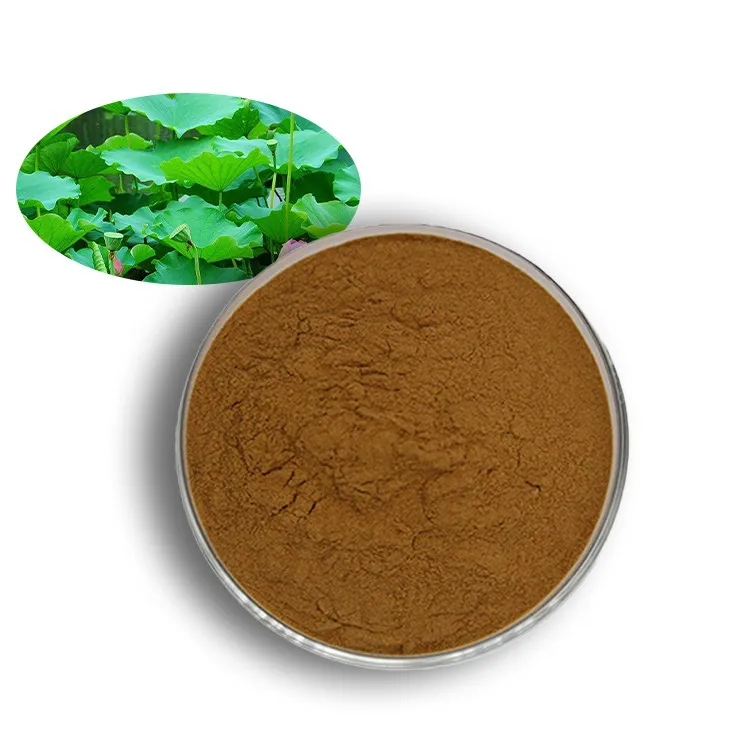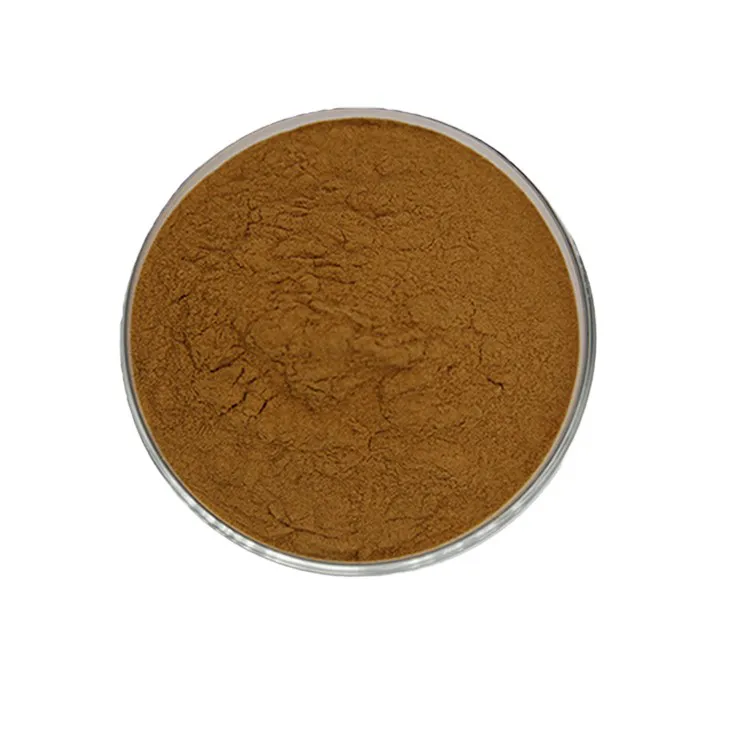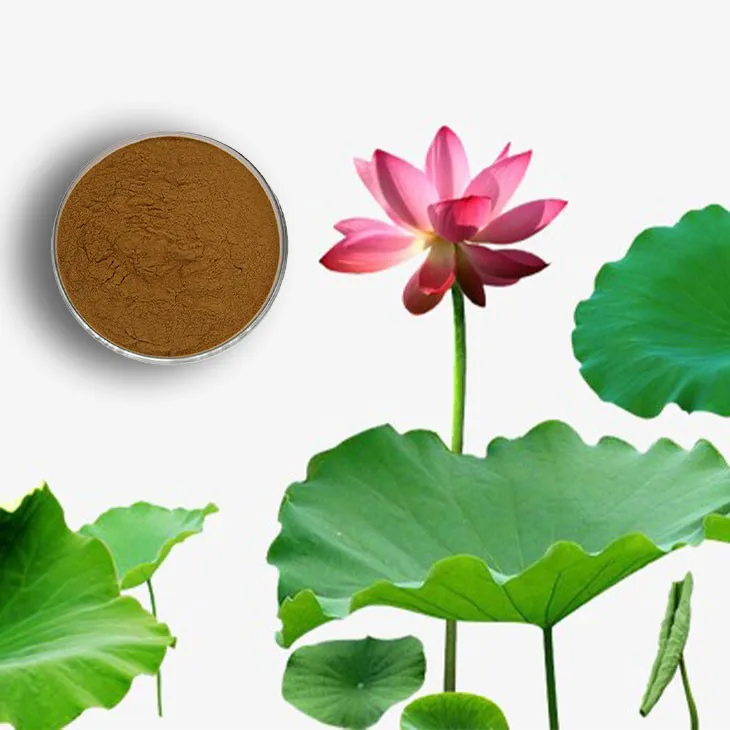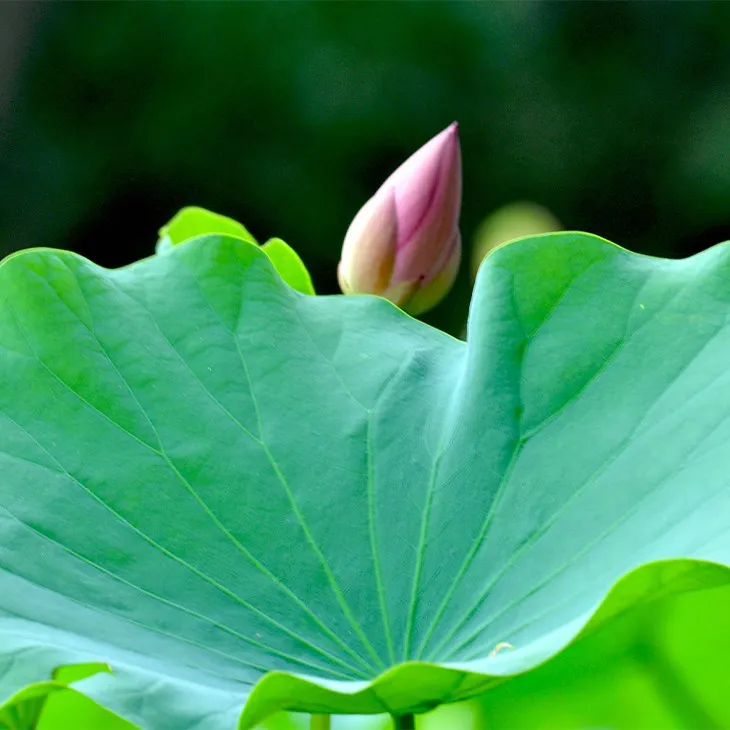- 0086-571-85302990
- sales@greenskybio.com
Organic lotus leaf extract of trace components.
2024-11-30

1. Introduction
Organic Lotus leaf extract, with its trace components, is emerging as a remarkable substance in various fields. The lotus plant has been a symbol of purity and beauty in many cultures, and now its leaf extract is being explored for its diverse properties. This extract contains a variety of compounds in small amounts, which together contribute to its multifunctional nature.

2. Health - related Properties
2.1 Antioxidant Effects of Flavonoids
In the realm of health, the organic Lotus leaf extract contains bioactive compounds like flavonoids. Flavonoids are known for their antioxidant properties, which can combat free radicals in the body. Free radicals are unstable molecules that can cause damage to cells, DNA, and proteins. By neutralizing these free radicals, flavonoids potentially reduce the risk of chronic diseases such as heart disease and cancer. For example, oxidative stress is a major factor in the development of atherosclerosis, a condition that can lead to heart attacks and strokes. The antioxidant action of flavonoids in the Lotus leaf extract may help prevent the oxidation of low - density lipoprotein (LDL) cholesterol, which is a key step in the formation of atherosclerotic plaques.
2.2 Alkaloids and Metabolism Regulation
Another important group of compounds in the lotus leaf extract are alkaloids. Alkaloids may have a positive impact on metabolism regulation. They can interact with various enzymes and receptors in the body to influence metabolic processes. For instance, some alkaloids may affect the way the body metabolizes carbohydrates, fats, and proteins. This could potentially be beneficial for individuals with metabolic disorders such as diabetes or obesity. By regulating metabolism, alkaloids in the lotus leaf extract may help maintain normal blood sugar levels and body weight.

3. Applications in the Beauty Industry
3.1 Astringent Properties and Pore Tightening
In the beauty industry, the extract has also found its place. Its astringent properties can help tighten pores and improve skin texture. The extract can cause the contraction of skin cells, reducing the appearance of enlarged pores. This is especially beneficial for people with oily skin, as large pores are often a concern due to excessive sebum production. By tightening the pores, the lotus leaf extract can give the skin a smoother and more refined look.
3.2 Oil Control in Skincare
It is often used in skincare products for its ability to control oil production, making it suitable for those with oily or combination skin. The extract can regulate the activity of sebaceous glands, which are responsible for producing sebum. By reducing sebum production, it can prevent the skin from becoming too greasy and shiny. This can also help reduce the occurrence of acne breakouts, as excessive sebum can clog pores and lead to the formation of acne - causing bacteria.

4. Cultural and Historical Significance
Moreover, from a cultural and historical perspective, the lotus has long been revered in many Asian cultures. In countries like China, India, and Thailand, the lotus is considered a sacred flower. It is often associated with spiritual purity, enlightenment, and beauty. The use of its leaf extract is a continuation of traditional knowledge passed down through generations. Ancient texts in these cultures often mention the medicinal and cosmetic uses of the lotus plant.
For example, in traditional Chinese medicine, the lotus leaf has been used for centuries to treat various ailments such as diarrhea, edema, and heatstroke. The knowledge of its beneficial properties has been passed down from one generation of herbalists to the next. In modern times, this traditional knowledge has been combined with scientific research to develop new products containing lotus leaf extract.
Its presence in modern products is a blend of ancient wisdom and modern science. Scientists are now able to isolate and identify the specific compounds in the lotus leaf extract that are responsible for its various properties. This allows for more targeted and effective use of the extract in different applications. For instance, in the development of skincare products, researchers can precisely formulate products with the right amount of lotus leaf extract to achieve the desired results.

5. Extraction and Processing
The extraction of organic lotus leaf extract involves several steps. First, high - quality lotus leaves are carefully selected. These leaves should be free from pesticides, contaminants, and diseases. Then, the leaves are usually dried to reduce their moisture content. This helps in preserving the bioactive compounds present in the leaves.
There are different methods of extraction, such as solvent extraction and supercritical fluid extraction. Solvent extraction is a commonly used method, where solvents like ethanol or methanol are used to extract the compounds from the lotus leaves. However, the choice of solvent is crucial as it can affect the quality and composition of the extract. Supercritical fluid extraction, on the other hand, uses supercritical fluids like carbon dioxide. This method has the advantage of being more environmentally friendly and can produce a purer extract.
After extraction, the extract is usually purified and concentrated to obtain a product with a high concentration of bioactive compounds. This may involve processes such as filtration, chromatography, and evaporation. The final product is then tested for its quality, purity, and activity to ensure that it meets the required standards.
6. Safety and Precautions
While organic lotus leaf extract has many potential benefits, it is also important to consider safety and precautions. In general, when used in moderation, the extract is considered safe for most people. However, some individuals may be allergic to the extract or its components.
Before using any products containing lotus leaf extract, it is advisable to do a patch test on a small area of skin. This can help determine if there is any allergic reaction. Pregnant and breastfeeding women should also consult their healthcare providers before using products with lotus leaf extract, as there is limited research on its safety during pregnancy and lactation.
Moreover, if the extract is taken orally, it should be obtained from a reliable source and used according to the recommended dosage. Excessive consumption may cause adverse effects, such as digestive problems or interactions with medications.
7. Future Prospects
The future of organic lotus leaf extract looks promising. As research continues, more of its properties and potential applications are likely to be discovered. In the field of health, further studies may uncover new ways in which the extract can be used to prevent and treat diseases.
For example, there may be potential for the development of new drugs or nutraceuticals based on the bioactive compounds in the lotus leaf extract. In the beauty industry, the demand for natural and effective skincare products is increasing, and the lotus leaf extract is well - positioned to meet this demand. New formulations and products containing the extract may be developed to target different skin types and concerns.
There is also potential for the use of lotus leaf extract in other industries, such as the food and beverage industry. It could be used as a natural additive to enhance the antioxidant content of foods or as an ingredient in functional beverages. However, more research is needed to explore these possibilities and to ensure the safety and efficacy of such applications.
8. Conclusion
In conclusion, organic lotus leaf extract with its trace components is a truly multifaceted wonder. It has significant potential in the fields of health, beauty, and cultural heritage. The combination of its traditional use and modern scientific research makes it a valuable substance for further exploration. As we move forward, it is important to continue to study and understand this extract to fully realize its potential benefits while also ensuring its safety and proper use.
FAQ:
What are the main bioactive compounds in organic lotus leaf extract?
The main bioactive compounds in organic lotus leaf extract are flavonoids and alkaloids. Flavonoids possess antioxidant properties, while alkaloids may play a role in metabolism regulation.
How does the organic lotus leaf extract benefit skin health?
The extract has astringent properties that can tighten pores and improve skin texture. It is also used in skincare products to control oil production, which is beneficial for those with oily or combination skin.
Why is the lotus important in Asian cultures?
The lotus has long been revered in many Asian cultures. It represents purity, enlightenment, and rebirth in some cultural and religious beliefs.
How can the antioxidant properties of flavonoids in lotus leaf extract be beneficial?
The antioxidant properties of flavonoids can combat free radicals in the body. By reducing the number of free radicals, it potentially lowers the risk of chronic diseases such as heart disease and cancer.
What is the significance of the trace components in organic lotus leaf extract?
The trace components, such as flavonoids and alkaloids, contribute to the multiple functions of the lotus leaf extract. Flavonoids' antioxidant and alkaloids' metabolism - regulating properties are important aspects of its significance.
Related literature
- The Bioactive Compounds of Lotus Leaf Extract and Their Health - related Applications"
- "Lotus Leaf Extract in Skincare: A Review of its Properties and Efficacy"
- "The Cultural Significance of the Lotus in Asian Traditions and the Role of its Leaf Extract"
- ▶ Hesperidin
- ▶ citrus bioflavonoids
- ▶ plant extract
- ▶ lycopene
- ▶ Diosmin
- ▶ Grape seed extract
- ▶ Sea buckthorn Juice Powder
- ▶ Beetroot powder
- ▶ Hops Extract
- ▶ Artichoke Extract
- ▶ Reishi mushroom extract
- ▶ Astaxanthin
- ▶ Green Tea Extract
- ▶ Curcumin Extract
- ▶ Horse Chestnut Extract
- ▶ Other Problems
- ▶ Boswellia Serrata Extract
- ▶ Resveratrol Extract
- ▶ Marigold Extract
- ▶ Grape Leaf Extract
- ▶ blog3
- ▶ blog4
-
How to make powder with peppermint oil?
2024-11-30
-
Organic konjac powder, Australia.
2024-11-30
-
Chinese Cassia Seed Extract Suppliers.
2024-11-30
-
Suppliers of Organic Diosmin Powder.
2024-11-30
-
Hesperidin with the best reviews.
2024-11-30
-
Organic Epimedium Extract Powder Supplier.
2024-11-30
-
Curcuma Longa Extract/Turmeric extract
2024-11-30
-
Horse Chestnut Extract
2024-11-30
-
Beta Carotene
2024-11-30
-
Berberis aristata Extract
2024-11-30
-
Gynostemma pentaphyllum extract
2024-11-30
-
Acerola Juice Powder
2024-11-30
-
Eucommia Ulmoides Extract
2024-11-30
-
Cocoa Extract
2024-11-30
-
Curcumin Extract
2024-11-30
-
Beetroot juice Powder
2024-11-30





















